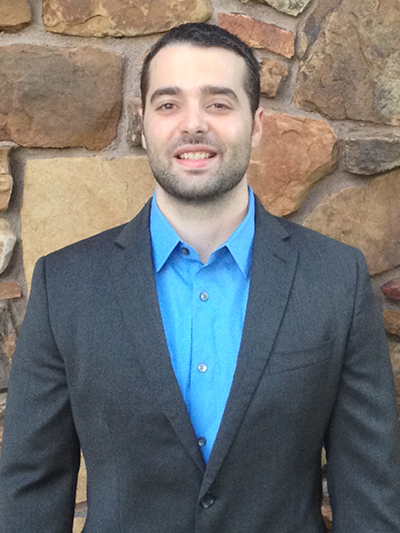A University of Arkansas doctoral student was awarded the Wayne B. Nottingham Prize for the best student paper presented at the 73rd annual Physical Electronics Conference.
Benjamin A. Gray, who has been working on the project as part of his dissertation performed in the Laboratory for Artificial Quantum Matter of Physics in the J. William Fulbright College of Arts and Sciences, received $1,000 and a certificate at the conference held in Raleigh, N.C., June 18-21.
Gray is the first University of Arkansas student to win the prestigious Nottingham Prize. Previous winners have come from institutions such as Boston University, the Max Planck Institute for Solid State Physics, Cornell University, the Massachusetts Institute of Technology, Northwestern University and Harvard University. Past winners also include members of the National Academy of Sciences.
The Nottingham Prize was established from contributions given in memory of Professor Wayne B. Nottingham of the Massachusetts Institute of Technology by his many friends and associates. The conference focuses on new research results in surface science and in the chemistry of surfaces and interfaces.
Gray’s paper, titled “Interfacial controlled carrier doping of a high-temperature superconductor,” and directed by his adviser, physics Professor Jak Chakhalian, was co-authored by fellow doctoral student Derek Meyers; U of A research associates Yanwei Cao, Michael Kareev and Srimanta Middey.
The research team experimented with new methods for releasing the rich properties of complex oxide materials, Gray said.
“These are the most enigmatic class of materials,” Gray said. “According to fundamental quantum physics models, most oxide materials should be excellent conductors of heat and electricity but surprisingly, experiments find that they are the strongest insulators. In these materials, electrons strongly interact with each other, which essentially freeze them in place.
“Over the last few decades, researchers have discovered techniques to remove parts of these interactions and free the electrons to move through those crystals,” he said. “Once unlocked, these systems display diverse, often exotic and technologically important phenomena.”
The research team used a newly developed crystal growth technique to create alternating layers, consisting of a high-temperature superconductor and ferromagnetic oxide with individual layers’ thicknesses of only a few atomic planes, Gray said.
“The unique configuration of atoms at the interface between the layers establishes movement of electrons across the interface that switches the high-temperature superconductor between the superconducting and insulating states,” he said. “Our finding will hopefully pave the way to novel quantum states through interfacial engineering.”
Topics
Contacts
Chris Branam, research communications writer/editor
University Relations
479-575-4737,
